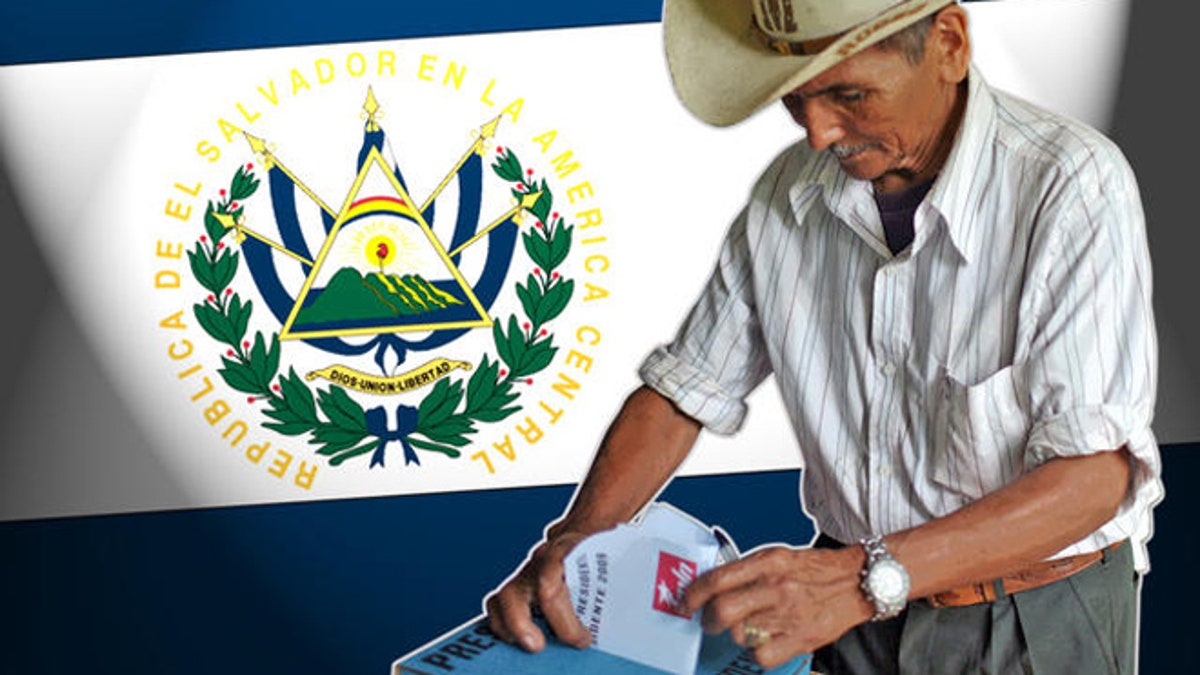
Joining the ranks of countries like Mexico, Venezuela and over 100 countries in the world, El Salvador passed legislation earlier this week allowing citizens living abroad to vote in the country's presidential elections.
With around 1.8 million Salvadorans living in the United States – around one-sixth of the country's 6 million citizens – the absentee votes could have a huge impact in the country’s upcoming presidential elections where Salvadoran’s next year will elect a successor to President Maurcio Funes.
“This is a historic day finally, as a state, we fulfilled the constitutional right for our citizens living abroad,” Salvadoran Foreign Minister Hugo Martínez said in a press release of the bi-partisan legislation. “Their voice and vote can be taken into account the political system, from anywhere in the world.”
In the heavily partisan Central American nation, lawmakers from the right-wing National Republican Alliance (ARENA) and the leftist Farabundo Martí National Liberation Front (FMLN) almost unanimously agreed on the legislation.
We’ve supported them for many years, especially economically, but we didn’t have the right to vote.
“In a country marked by deep political divisions, it’s impressive that all parties came together to vote in favor of voting abroad,” said Jason Marczak, director of policy at Americas Society and Council of the Americas. “Salvadoran lawmakers saw the large diaspora living abroad and the importance that the exile community has in the country, especially in terms of economics."
Remittances sent to family members in El Salvador – around $2.5 billion annually - represent the country’s main source of income and lawmakers are hoping to keep Salvadoran’s living abroad involved in the country’s politics in the hope that this money will continue to generously flow home.
“This opportunity to vote in El Salvador will not only empower a high percentage of the Salvadoran dispapora, but a huge part of the Salvadoran community that supports the country’s economy through remittances,” Marczak said.
Salvadoran activists in the U.S. echoed these sentiments, saying that for years they have helped keep the country afloat and that now they finally have a say in what goes on in their native land.
“It’s very important to pass this law because there are a large number of Salvadorans living outside the country who don’t have the same rights that people living in the country do,” said Blanca Molina, the president of Centro Comunitario CEUS, a non-profit in New Jersey aimed at helping Salvadoran immigrants. “We’ve supported them for many years, especially economically, but we didn’t have the right to vote.”
Despite the large number of Salvadorans living abroad and their economic power back home, it is still unclear how many people will go to the polls come the 2014 presidential election. There is a huge divide between the younger generation of Salvadorans who came to the U.S. as children and the older generation who fled the country’s brutal civil war in the 1980s and 90s.
“Most refuges today are economic refugees, not political ones,” said Dr. Bruce Bagley, a professor on International Studies at the University of Miami. “These people are less concerned about what goes on in El Salvador than they are about supporting their families.”
During the civil war, people fled El Salvador for cities like Los Angeles and New York to avoid the violence between the country’s U.S.-back right-wing government and leftist guerrillas. In recent years, the lack of jobs and the country’s fledgling economy have forced Salvadoran migrants to make the journey to the U.S. alongside other Central American and Mexican migrants.
“I would consider voting, but to be honest I’m not really that interested in the politics of what’s going on in El Salvador,” said Lisseth Guerrero, a manager at the El OK Salvadoreño Restauant in Queens, N.Y., who came to the U.S. when she was young.
Experts argue that Guerrero’s sentiments are common among a whole generation of the Salvadoran diaspora who feel more like Americans than they do Salvadorans. The law, however, could still influence Salvadoran politics if the older generations head to the polls come 2014.
“If you were brought here when you were young and now you’re maybe a potential DREAMer, you think of the U.S. more as your home and El Salvador is only a place to send money,” Marczak said. “But their parents are still ones that care about what goes on down there.




